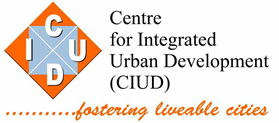On Poush 16, 2075 (December 31, 2018), Monday, at District Coordination Committee Hall, Babarmahal, Kathmandu, Centre for Integrated Urban Development (CIUD) organized a half day program on Review, Lesson Learnt and Feedback on Cholera/AGE Prevention and Preparedness program – 2018 and Way Forward with Health Officials of Kathmandu Metropolitan City. In the very cold day, the hot issues of waterborne diseases related with the human health made the warm environment among the participants.
On Poush 16, 2075 (December 31, 2018), Monday, at District Coordination Committee Hall, Babarmahal, Kathmandu, Centre for Integrated Urban Development (CIUD) organized a half day program on Review, Lesson Learnt and Feedback on Cholera/AGE Prevention and Preparedness program – 2018 and Way Forward with Health Officials of Kathmandu Metropolitan City. In the very cold day, the hot issues of waterborne diseases related with the human health made the warm environment among the participants.

Acute gastroenteritis accounts for millions of deaths each year in young children, mostly in developing communities. In developed countries, it is a common reason for existence of general practice or emergency departments and for admission to hospital. Therefore, the start of the Cholera/Acute gastroenteritis prevention and preparedness was one of the major components of this program for preparing people from KMC from becoming more serious to avoid such disaster during monsoon period. In 2015, few cholera cases were reported in the Kathmandu valley, though the disease was said to be fully eradicated. But soon after the hardest hard hit-earthquake in April 2015, the lots of damages and destructions and delay of clearing the debris and clearing of the solid waste had jeopardized the situation in the valley. The impact of this found to be awakened of Cholera virus. Since then, UNICEF has been partnering with the local NGOs and the local government agencies to aware the citizens of the valley in taking precautions and preventative measures to avoid the possible cholera outbreak. In this way, from 2017 to 2018, CIUD, ENPHO, Minergy, and Yuwalaya implemented their project in financial support from UNICEF Nepal.
The project Technical Support to KMC on Cholera/AGE prevention and preparedness was a collaborative intervention to suppress the possible outbreak of cholera and other waterborne diseases. Under this program, many events like booth campaign, orientation, water quality testing using P/A vial kit, brief explanation of safe drinking water during monsoon to avoid the contamination and distribution of WASH materials, lab testing of the water source, techniques of water improvements, making liquid chlorination in household level, water conservation including orientation on rainwater harvesting and groundwater recharge were conducted. Installation of groundwater recharge systems was another hardware activity to demonstrate urban water management. It helps to increase groundwater level in longer term and provide a reliable source of water for the poor urban communities for sanitation and cleaning purposes. The advocacy and the evidence based sensitization to the concerned local authorize and stakeholder was another key part of this project using the tool like Urban Child Centered Risk Mapping (UCCRM) in the community schools.
Such solution oriented activities are major events to support KMC technically. The benefits, outputs and the finding with beneficiaries on these activities were disseminated to the Urban Health Clinics in close coordination with Urban Health Section of Kathmandu Metropolitan City.
To the fullest, CIUD implemented these initiatives in coordination with Urban Health Clinics and local authorities such as ward officials and education department after the approval from Health Section of KMC. To share their works and to collect the feedback, ENPHO, Minergy, Yuwalaya and CIUD shared their program activities briefly to the health in-charge and to the officials of Health Section of KMC. Chief of Health Department, Mr. Narendra Bilas Bajracharya was convinced and expressed the positive output from it. He said that his department, in coordination with civil organization, could build up more action to aware communities and their behavior change programs. He added that even the KMC would endorse plan and budget for these kinds of activities to prepare the people from disaster. The ultimate objective of the program was to capacitate the people with preventive approaches and prepare them to deal during the emergency periods.
In the program, over 30 participants from 15 Urban Health Clinics – Health Incharge and staffs, KMC Health Department team, working partner’s team and UNICEF representative were present. The program was fruitful and the evaluation of the program implementation part was provided to the Health Department of Kathmandu Metropolitan City for future reference.
